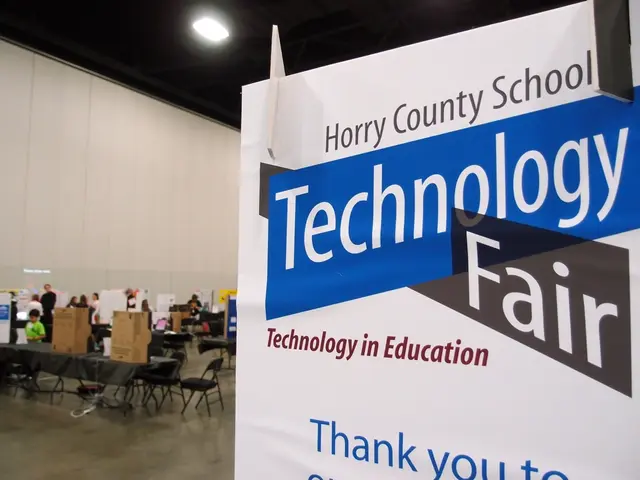Impact of COVID-19 on Poland's Ability to Achieve its 2020 Renewable Energy Target
The coronavirus pandemic has brought about a significant shift in Poland's energy landscape, with the demand for electricity falling and a subsequent increase in the share of renewable energy sources in the energy mix.
In response to the impacts of the crisis on energy and climate policy, the Polish government is promoting investments in renewable energy sources and accelerating the energy transition to align with EU targets for 2020 and 2050. This includes measures to reduce dependence on fossil fuels and enhance sustainable energy infrastructure.
One of the EU's 2020 climate goals for Poland is to increase the share of renewable energy sources in total energy consumption to 15 percent, covering electricity, heating, and transport sectors. In 2018, the share of renewable energy in total energy consumption stood at 11.3 percent, but in 2019, the share of renewable energy sources in domestic energy production reached a record high of 15.3 percent.
The reduced electricity demand is leading to a decrease in carbon dioxide emissions. The current crisis has led to a drop in electricity demand in Poland by up to 8.5 percent over the last two weeks of March. This shift towards renewable energy sources is increasing their share in the Polish energy market.
However, the strategy for exiting the anticipated recession could potentially cancel out the fall in emissions if it involves stimulating non-sustainable demand or providing aid packages to polluting industries.
The lower electricity demand is causing a strain on conventional power plants and Polish coal mines, which were previously operating on or below profitability thresholds. The slowing growth in domestic GDP, estimated to fall by as much as 4.4% in 2020, is already affecting the energy market.
The world is facing a crisis to stop the spread of the virus, but climate protection is also ongoing. The need for a just energy transformation and Poland's compliance with EU climate goals for 2050 should not be overlooked, regardless of the impact of the coronavirus on meeting the 2020 targets.
Polish energy market regulations prioritize sources with lower variable costs, such as renewable energy sources, during periods of lower demand. This, coupled with the reduced demand for electricity, is driving the growth of renewable energy production.
The direction of the energy transformation in Poland after the pandemic will depend on the strategy for overcoming economic problems. According to Bartłomiej Kozek of UNEP/GRID-Warsaw Centre, the changes brought by the virus to Poland's electricity system may help reduce emissions, but it is uncertain whether these mechanisms are sufficient to meet the EU's climate targets for 2020.
Joanna Maćkowiak-Pandera, president of Forum Energii, believes that the coronavirus pandemic may bring Poland closer to achieving its EU climate goals. However, the growth trajectory of renewable energy production is not enough to achieve the EU's climate target, which covers renewable energy consumption not only in electricity, but also in transport and heating sectors.
NSZZ 'Solidarność' has requested the European Commission to suspend charges for CO emissions, arguing that they are overburdening coal-fired power generation. This request highlights the ongoing challenges in the transition to renewable energy sources, even amidst the current crisis.
In conclusion, the COVID-19 crisis has brought about a significant shift in Poland's energy landscape, with the demand for electricity falling and a subsequent increase in the share of renewable energy sources in the energy mix. While this shift may help reduce emissions, it is uncertain whether these mechanisms are sufficient to meet the EU's climate targets for 2020. The direction of the energy transformation in Poland after the pandemic will depend on the strategy for overcoming economic problems, and the need for a just energy transformation and Poland's compliance with EU climate goals for 2050 should not be overlooked.
Read also:
- Catastrophe at a U.S. Steel facility in Pennsylvania results in the loss of two lives. crucial details unveiled
- Auto Industry Updates: Geotab, C2A, Deloitte, NOVOSENSE, Soracom, and Panasonic in Focus
- Sustainability Focuses on Preserving Nature, Financial Stability, and Social Equality
- Evaluating car manufacturers' dedication to Zero-Emission Vehicles (ZEVs)








